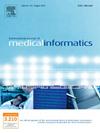“可怕的东西。“我们已经有了”:医院员工对新的电子健康记录的反应及其对员工福祉的影响——一项定性研究
IF 4.1
2区 医学
Q2 COMPUTER SCIENCE, INFORMATION SYSTEMS
International Journal of Medical Informatics
Pub Date : 2025-07-10
DOI:10.1016/j.ijmedinf.2025.106039
引用次数: 0
摘要
背景电子健康记录(EHR)的实施显著地影响了医疗保健专业人员的日常工作。以前在斯堪的纳维亚医院实施的Epic导致了负面结果,强调了对员工体验进行全面评估的必要性。目的定性地探讨医院员工在实施Epic EHR六个月后的体验,并评估其对员工幸福感和患者安全的影响。方法实施后6个月,在挪威某大学医院进行定性研究。我们使用现象学框架内的反身性主题分析,对来自950名员工(2,115名调查受访者)的自由文本回复进行了分析。通过焦点小组访谈和观察结果对数据进行三角化处理。结果实施后,员工报告了深深的担忧和高度的情绪强度。分析显示了13个主题,其中可用性最为突出(n = 682个引用)。参与者称该系统繁琐、效率低下、违反直觉。其他主要主题包括工作压力和自身健康(n = 385)、药物管理和患者安全(n = 201)以及政治和医院管理(n = 184)。许多员工经历了职业认同的转变,其中一些人表达了放弃工作的意图。结论电子病历实施不力,影响了专业工作绩效,影响了患者的护理,并加剧了患者的情绪困扰。解决工作流障碍和设定现实的期望对于提高采用率至关重要。未来的实施必须整合员工的观点和基于证据的策略,以确保电子健康档案系统促进而不是阻碍医疗服务的提供。本文章由计算机程序翻译,如有差异,请以英文原文为准。
“Terrible Stuff. We’ve been had“: hospital staff reactions to a new electronic health record and implications for employee well-being – A qualitative study
Background
Electronic Health Record (EHR) implementations significantly affect healthcare professionals’ work routines. Previous Epic implementations in Scandinavian hospitals have led to negative outcomes, highlighting the need for a thorough evaluation of employee experiences.
Objective
To qualitatively explore hospital employees’ experiences six months after Epic EHR implementation and assess implications for employee well-being and patient safety.
Methods
A qualitative study conducted at a Norwegian university hospital, six months post-implementation. Free-text responses from 950 employees (out of 2,115 survey respondents) were analyzed using reflexive thematic analysis within a phenomenological framework. Data were triangulated with focus group interviews and observational findings.
Results
Employees reported deep concerns and high emotional intensity post-implementation. Analysis revealed 13 themes, with usability being most prominent (n = 682 quotes). Participants described the system as cumbersome, inefficient, and counterintuitive. Other major themes included work strain and own health (n = 385), administration of medicine and patient safety (n = 201), and politics and hospital management (n = 184). Many employees experienced shifts in professional identity, with some expressing job abandonment intentions.
Conclusions
Poorly executed EHR implementations hinder professional performance, compromise patient care, and amplify emotional distress. Addressing workflow barriers and setting realistic expectations is critical for improving adoption. Future implementations must integrate employee perspectives and evidence-based strategies to ensure EHR systems enhance rather than obstruct healthcare delivery.
求助全文
通过发布文献求助,成功后即可免费获取论文全文。
去求助
来源期刊

International Journal of Medical Informatics
医学-计算机:信息系统
CiteScore
8.90
自引率
4.10%
发文量
217
审稿时长
42 days
期刊介绍:
International Journal of Medical Informatics provides an international medium for dissemination of original results and interpretative reviews concerning the field of medical informatics. The Journal emphasizes the evaluation of systems in healthcare settings.
The scope of journal covers:
Information systems, including national or international registration systems, hospital information systems, departmental and/or physician''s office systems, document handling systems, electronic medical record systems, standardization, systems integration etc.;
Computer-aided medical decision support systems using heuristic, algorithmic and/or statistical methods as exemplified in decision theory, protocol development, artificial intelligence, etc.
Educational computer based programs pertaining to medical informatics or medicine in general;
Organizational, economic, social, clinical impact, ethical and cost-benefit aspects of IT applications in health care.
 求助内容:
求助内容: 应助结果提醒方式:
应助结果提醒方式:


